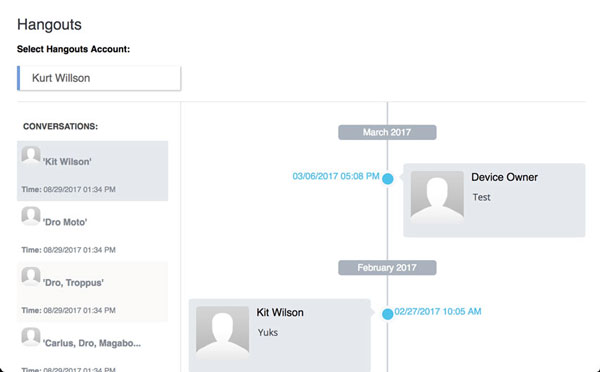Why You Shouldn’t Ignore a Whistling Sound from Your Plumbing
updated on 01 04, 2025 | 1win Turkiye

Table of Contents
When homeowners notice unexpected noises emanating from their plumbing systems, such as a peculiar whistling, it is essential to consider the implications for plumbing health. These sounds can indicate underlying issues, such as trapped air in pipes, which can lead to more serious complications if left unaddressed.
One common consequence of neglecting these peculiar noises includes water hammer effects, a phenomenon that can cause significant stress on pipes and fixtures. This not only affects the longevity of the plumbing but can also escalate repair costs over time. Addressing such issues promptly enhances overall home safety by preventing potential water damage or major plumbing failures.
Professional inspections are highly recommended to accurately diagnose and resolve any irregularities in the plumbing system. By prioritizing these checks, homeowners can ensure their systems function optimally, safeguarding both their property and peace of mind.
Identifying the Source of the Whistling Noise in Your Pipes
Locating the origin of unusual noises in the plumbing system is essential for maintaining plumbing health and ensuring a safe home environment. Various factors can contribute to these disturbances; recognizing them can help in addressing potential risks early. One common reason is air in pipes, which can lead to inconsistent flow and pressure fluctuations.
Another potential culprit might be pipe pressure issues that arise when water travels at high speeds or when there are sudden changes in direction. This situation may cause vibrations and produce distinct sounds that need further examination. Regular monitoring and understanding of these anomalies can prevent more significant problems down the line.
Homeowners are encouraged to seek professional inspections to effectively diagnose and remedy any concerns related to excessive noises in their plumbing systems. Skilled plumbers will utilize their expertise to identify the exact source, be it due to worn-out components or improper installation. By taking prompt action, one can help sustain the integrity of the plumbing system and ensure peace of mind in the household.
Common Plumbing Issues Indicated by Whistling Sounds
Listening closely to peculiar noises in the plumbing system can reveal various underlying problems. One of the common issues that can cause unusual sounds includes air in pipes. This trapped air can result in a gurgling or hissing effect, which may signify that the system isn’t operating efficiently. Addressing this promptly helps maintain optimal plumbing health.
Additionally, experiencing water hammer effects is another potential concern linked to unexpected noises. This phenomenon occurs when a fluid in motion is forced to stop suddenly or change direction, creating a shockwave. The result can be a banging or knocking sound that indicates potential stability issues within the system, which could affect home safety.
Another factor to consider is pipe pressure issues. Fluctuations in pressure may lead to strange acoustic signals throughout the plumbing network. Understanding these variations is essential for maintaining a secure and reliable infrastructure in the home.
For expert assistance regarding these matters, visit https://bastanchuryplumbing.com. Keeping an ear out for any unusual vocalizations from the plumbing can prevent future complications.
Early detection of these noises ensures peace of mind and a well-functioning system. Contact professionals through https://bastanchuryplumbing.com for comprehensive evaluations and solutions tailored to specific plumbing needs.
Steps to Take When Hearing a Whistling Noise in Pipes
When peculiar noises emanate from the plumbing system, swift action is crucial to ensure home safety. Here are actionable steps to address the issue effectively.
First, assess the frequency and intensity of the noise. A persistent or loud whistle may indicate a more serious problem, such as air in pipes or pipe pressure issues. Making a note of when these sounds occur can also help in diagnosing the underlying cause.
Next, check for visible signs of leaks or damage around faucets, valves, and joints. This could highlight where water hammer effects may be taking place, leading to unusual auditory signals. Addressing leaks promptly can prevent further complications.
If the situation appears complex, scheduling professional inspections is advisable. Skilled technicians can identify and resolve the root causes of piping issues while ensuring that plumbing remains efficient and safe.
Finally, take preventive measures by regularly monitoring the plumbing system. Performing routine checks can help detect air in pipes or abnormal changes in pipe pressure early on, minimizing the likelihood of severe problems later.
Q&A:
What could cause a whistling sound from my plumbing?
A whistling sound in your plumbing can be caused by various factors. One common reason is a buildup of mineral deposits in the pipes, which can restrict water flow and create noise. Another possibility is that the water pressure is too high, leading to vibrations that produce a whistling sound. Additionally, loose or worn-out washers in faucets can also lead to whistling as water passes through them. Checking these areas can help identify the source of the noise.
Is a whistling noise from plumbing harmful?
While a whistling sound itself isn’t necessarily harmful, it can be indicative of underlying issues that may lead to more serious problems. For instance, if high water pressure is causing the noise, it can put stress on your plumbing system and potentially lead to leaks or bursts. Similarly, mineral buildup can eventually cause clogs or reduced water flow. Ignoring the noise might lead to larger repairs down the line, so it’s wise to investigate and address it sooner rather than later.
How can I fix the whistling sound in my plumbing?
To address a whistling sound in your plumbing, first, try to identify its source. Check for high water pressure by using a pressure gauge; if it’s too high, consider installing a pressure-reducing valve. If mineral deposits are suspected, you might need to descale your pipes or have a professional perform this task. For noisy faucets, replacing old washers or installing new aerators can also help reduce the sound. In cases where you’re uncertain, consulting a plumber for a thorough inspection is advisable.
Should I call a plumber for a whistling noise in my plumbing?
If you hear a persistent whistling noise in your plumbing, it’s generally a good idea to consult a plumber. While some issues might be minor, a professional can help assess the situation accurately and determine if there are any serious problems that need attention. This can prevent further damage and costly repairs in the future. If the noise is accompanied by other symptoms, such as leaks or fluctuating water pressure, seeking help immediately is even more critical.















